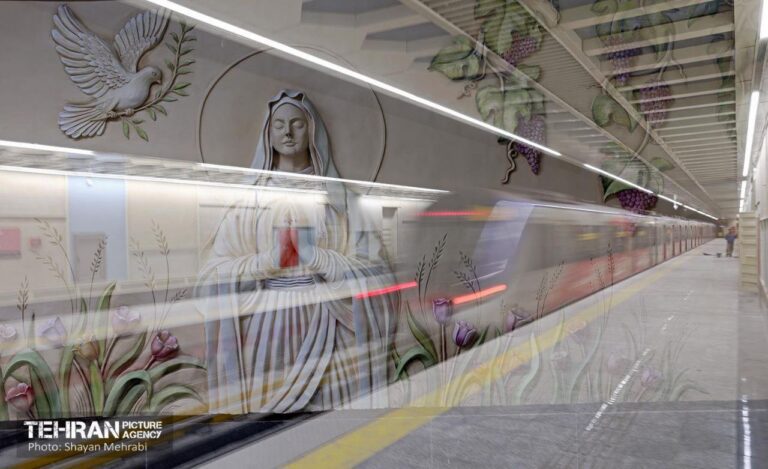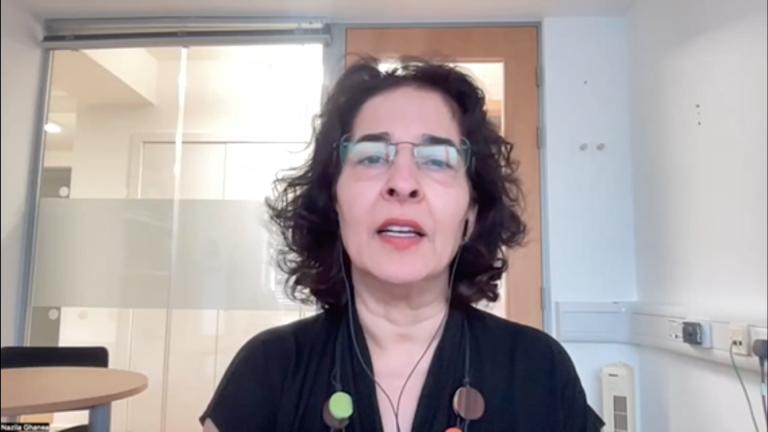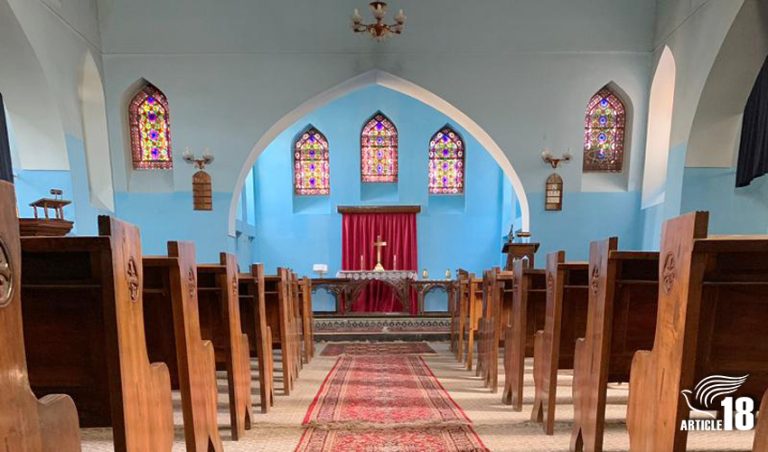
By Fred Petrossian
Iran’s former foreign minister Mohammad Javad Zarif has emphasised “positive discrimination” for women and minorities in his new role as head of the transitional council responsible for evaluating governmental candidates, but it is the Islamic Republic itself that has been the main source of discrimination and oppression over the past 45 years.
The Islamic Republic has deprived millions of Iranians, such as Christian converts, Baha’is, and followers of the Yarsan faith, of basic citizenship and human rights solely because of their beliefs and convictions.
And while Zarif, who was appointed to this position by newly elected president Masoud Pezeshkian, speaks about “positive discrimination” for women, only three were appointed onto his own 31-member council.
Every member belongs to the “reformist” faction of the Islamic Republic, but this includes former ministers such as Mohammad Javad Azari Jahromi, who was sanctioned by the US for his part in clamping down on the 2019 protests.
After protests regarding the council’s composition, it was announced that a Baluch and a Kurd would also be added to the list.
Meanwhile, Mohammad Habibi, the spokesperson for the Tehran Teachers’ Association, commented: “In this list, individuals are introduced as representatives of trade unions who are not members of any unions. As always, no trade unions participate in the political games of ministerial elections.”
A fictional Iran for a Western audience
Previously, Mr Zarif, when he was the foreign minister invited to speak by US TV programmes and think-tanks, would present a fictional world of the situation of religious minorities and freedom of belief in the country, without being challenged by his hosts.
Alongside lies and disinformation like “we don’t have political prisoners in Iran”, or “Baha’is are not imprisoned because of their beliefs”, he once claimed at the Council of Foreign Affairs in New York that although Iran’s judicial system is founded on Islamic Sharia, “it is not enforced” upon the adherents of the three recognised religious-minority faiths: Christians, Jews and Zoroastrians.
In actual fact, several legal provisions in the Constitution of the Islamic Republic, its Penal Code, and its Civil Code discriminate against all non-Muslims, while the UN Special Rapporteur on the situation of human rights in the Islamic Republic, Javaid Rehman, has highlighted how mandatory hijab laws are enforced upon all women, regardless of their beliefs.
Meanwhile, Christian converts are not considered part of the Iranian Christian community by the government, and no-one, including Mr Zarif, bothers to explain about these citizens, who constitute the largest section of the country’s Christian community and whose numbers have multiplied since the revolution.
Every year, some of these Christian citizens are imprisoned for their peaceful religious activities and beliefs.
In an attempt to justify why Bahai’s are not considered a religious minority, Zarif presented a fictional and imaginary world where religious minorities enjoy privileges:
“If you want to afford—if you want to afford such exceptional treatment to religious minorities, you cannot provide it to anybody who claims it on a religion,” he said. That’s the issue. We do not; we only recognise three [minority] religions as official religions because when we recognise them as official religions, we need to afford them these privileges under our constitutions to be exempt from what the Muslims have to do.”
Referring to the treatment of minorities as “exceptional” is a kind of bitter satire. Discriminatory laws against these citizens – from inheritance, to job deprivation – are so severe that their populations have shrunk to less than a third of what they were before the revolution, due to emigration or escaping their homeland, while Iran’s population has exploded.
Discrimination has been so severe that even the handpicked representatives of these minorities in the parliament have several times criticised the situation.
Non-Muslim ‘dominance’ over Muslims forbidden
In Islamic Iran, citizens’ rights have no meaning, and it is the state that determines the rights of Iranians not as equal citizens but within the framework of its Islamic laws.
Millions of Iranians, or the absolute majority of the population – including women, minorities, Gonabadi dervishes, Christians (especially converts) Sunnis, Yarsanis, Baha’is, Mandaeans, Zoroastrians, and Jews – have been dehumanised to varying degrees. Some also face intersectional discrimination, such as a Christian convert woman or Sunni Baluch woman who are both victims of religious and gender apartheid, or systematic discrimination.
In 2017, the suspension on religious grounds of an Iranian Zoroastrian councillor, Sepanta Niknam, polarised opinion among leading figures of the Islamic Republic and led to a campaign on social media calling for him to be reinstated.
The conservative Guardian Council, the country’s powerful election watchdog, agreed with the suspension, with the six cleric members implicitly confirming the second-class – or, more accurately, third-class – status of minorities in a statement.
The extensive article on the Guardian Council’s website defended this Islamic decision and stated that: “In an Islamic society, Muslims should handle Muslim affairs, and it is not acceptable for a non-Muslim to decide for the affairs of Muslim areas.”
This rule originates from verse 141 of Surah An-Nisa, which prohibits “infidels” or “unbelievers” from having “dominance” over Muslims, a verse that the founding father of the Islamic Republic, Ruhollah Khomeini, accepted should become the rule.
As one of the clerics, Ayatollah Mohammad Yazdi, explained: “I was present in the six-member session of the Guardian Council, and the majority unanimously declared that this religious minority does not have the right to decide for a population that is mostly Muslim, and this is against Sharia. That is, a non-Muslim minority, whether Zoroastrian, Christian, or Jewish, cannot decide for the affairs of a city where the majority are Muslims and be the ruler; of course, they can decide for their minority.”
This was despite Mr Niknam being elected to the city council in the previous term and having been active.
Such a decision cannot be considered as a surprise or an unusual act by the this conservative body, as we remember that its chairman, Ayatollah Ahmad Jannati, once referred to Iran’s religious minorities as “sinful animals who roam the earth and engage in corruption”.
Of course, clerics like Ayatollah Yousef Saanei opposed the Guardian Council’s opinion, and even conservative former MP Ali Motahari defended Mr Niknam.
Parliament, contrary to the Guardian Council’s opinion, passed a law allowing religious minorities to run for the Islamic city and village councils in their residence areas. Eventually, the Expediency Council, which intervenes in cases of disagreement between Parliament and the Guardian Council, sided with Parliament.
Trump impact
Proponents of overturning the Guardian Council’s ruling might also find similar arguments in the actions and statements of government officials today.
Critics of suspending the Zoroastrian council member in Yazd argued that such actions were “wrong” and had domestic and international political repercussions.
Mohammad Sadr, a member of the Expediency Council, said during the debate over Mr Niknam’s status six years ago: “I know this is a significant issue that impacts Iran’s international and domestic position and, most importantly, the country’s national cohesion. We need all ethnic and religious minorities to be united to defeat Trump.”
We hear similar statements today from Heshmatollah Falahatpisheh, former head of the National Security and Foreign Policy Commission of Parliament, about not being surprised by the US election results.
In reality, the rights of religious and sectarian minorities as citizens are not considered; instead, it depends on the situation, the time, and the ruling of a particular cleric for the regime’s benefit. A system that itself is a source of discrimination.
Mr Niknam was deemed suitable for the Yazd city council based on the needs of the time but was disqualified from participating in the Tehran city council elections three years later for not being Muslim.
Even by the government’s own figures, more than half the people did not participate in the recent presidential election. The “Woman, Life, Freedom” movement and the killing of hundreds of women, men, and children posed the greatest internal challenge to the regime, and now, with the possible return of Trump, the government remembers minorities, ethnicities, and women and the 45 years of oppression that they have suffered and which they in fact caused.
Government officials have always prioritised preserving the regime and the ruling class’s dominance. If necessary, they will also offer temporary, minor concessions to some segments of society.
In this discriminatory system, which imposes structural violence on Iranian citizens based on gender, belief, and other factors, talking about positive discrimination is like the apartheid government of South Africa appointing a black minister without ending the racial system but maintaining the same laws as before.



0 Comments